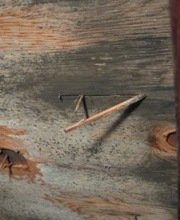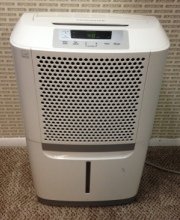Find a Mold Specialist Now
Click or Call, Toll-Free 24/7
Does Bleach Kill Mold?
Does bleach kill mold? It seems like such a simple question, but it really isn't.
While using bleach on mold is a fairly common practice and many people believe it is effective, it won't always kill mold. Even in circumstances in which bleach will kill mold, there are some reasons why other mold killing products may be better choices. It's a more complicated issue than you might think and you might be surprised to learn that the National Organization of Remediators and Mold Inspectors recommends against using bleach for mold remediation.
So Does Bleach Kill Mold?

The short answer is, sometimes it does.
But to really answer this question, we should first talk about what bleach is. These days, products we call bleach contain a chemical called sodium hypochlorite. In high enough concentrations, sodium hypochlorite is known to be an antimicrobial pesticide that will kill mold. It is registered as such under the Federal Insecticide, Fungicide, and Rodenticide Act. However, sodium hypochlorite can also be sold as a household cleaner or laundry whitener, without being registered as a pesticide. Those products only contain small amounts of sodium hypochlorite, are not guaranteed to kill mold and are not sold for that purpose.
So bleach should kill mold when the product containing bleach specifically states it does so on the label. Other products containing bleach might kill mold but there is no way to know for sure if they will be effective for that purpose. The bleach that is sold in the laundry section of the store will keep your clothes white, but it might not get rid of mold in your home.
Alternatives to Using Bleach on Mold
We'll say right now that we recommend against using bleach to kill mold, even when it might be effective. Why do we suggest using something other than bleach on mold? There are several reasons.
Using bleach on wood or any other porous material is particularly problematic. The bleach may remove the mold on the surface of the wood, but only the water in the bleach will seep deeply into the wood. If the mold has grown deeply into the wood, which it usually does, then the water will help the mold to grow back.
Even when bleach will kill mold, bleach is a strong chemical that can be hazardous to your health. Bleach can irritate your skin and you should wear gloves when using it. If you're using bleach to clean up mold, you may also want to wear goggles to protect your eyes in case bleach splashes on your face. The fumes from bleach can be irritating to the lungs, especially if you have asthma or other breathing problems. Bleach should only be used for cleaning purposes in a well-ventilated area. You should never mix bleach with other cleaning products because when it is combined with certain other chemicals, a toxic gas results.
In addition, bleach can damage many surfaces and may discolor some materials. Care must be taken to avoid spills or splashes that can discolor or damage clothing or other items.
For all these reasons, even though bleach may kill mold, we prefer more reliable alternatives. Fortunately, when it comes to alternatives to bleach, there are plenty from which to choose. You can read about some of the available products to kill mold.
When looking for an alternative mold killer, look for something that is specifically designed to kill mold. Getting rid of mold is critical to your health and the health of your family, so it's worth taking the time to do a little research on products you are considering.
Some people prefer natural alternatives such as vinegar (usually diluted with water) or tea tree essential oil. Some of these things do have antibacterial and/or antifungal properties and may make good general cleaners. That doesn't mean they will kill mold, however.
If you're looking for a natural alternative to bleach for killing mold, we like Endurance BioBarrier Mold Cleaner, which is made from a variety of organic plant extracts and plant oils. It is specifically designed to kill mold and it is much safer to use than bleach or other chemical products. You can follow the link to learn more about our preferred alternative to bleach.
For Help Removing Mold
If you need help removing mold, or if you'd just like some professional advice regarding products that kill mold, we suggest scheduling a free in-home consultation with a mold removal professional. You'll get a written estimate for the cost of having the professional handle the job, and you'll also get free advice from an expert in the field. You are under no obligation. You can ask the professional does bleach kill mold and any other questions you have about the best way to remove mold from your home. To find experienced mold removal professionals offering free in-home consultations in your area, just follow the link.
Return From Does Bleach Kill Mold To Our Recommended Products Page
Ref:
NORMI
Privacy Policy Terms and Conditions Accessibility Do Not Sell My Information Disclaimer Contact Us




